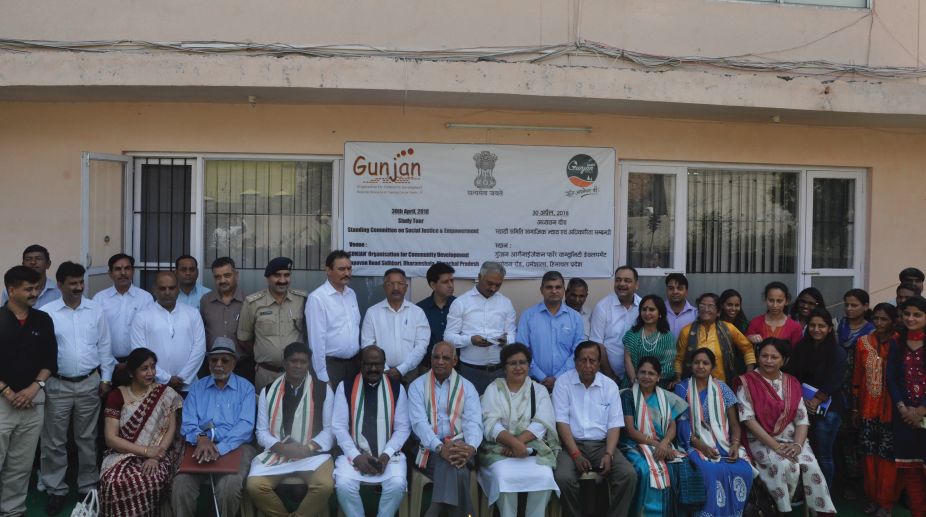Khattar suspends police officer for delay in filing challans
Acting tough in a case related to Beti Bachao Beti Padhao programme, Haryana Chief Minister Manohar Lal Khattar on Wednesday…

As women and juveniles too are falling preys to the menace of substance abuse, there is the need to set up separate Integrated Rehabilitation Centres for Addicts (IRCA) to cure them of addiction.
This was the recommendation of the Regional Resource and Training Centre (RRTC) of Union Social Justice and Empowerment Ministry to the ??Parliamentary Standing Committee.
The Committee of the Union Social Justice and Empowerment ministry was on one day study tour at the Gunjan organisation for community development at Dharamshala in Kangra district, around 240 km from here.
Advertisement
Gunjan is the implementer of the RRTC. The RRTC recommendation comes in the wake of findings that treating juveniles and women in existing IRCAs would expose them to various social stigmas and other types of drug substances.
“While the juveniles are falling prey substance abuse these days, their treatment at the existing facilities at par with adults may expose them to other types of drugs,” Sandeep Parmar, Executive Director of Dharamshala based Gunjan NGO told The Statesman.
In addition, women are also falling prey to various types of substance as many a times, they become addicted to certain type of medications as painkillers, he said, adding the issue needs to be addressed at earliest and at par with other types of hard drug addicts.
“It was for these reasons that we have submitted proposal to setup IRCA for juveniles and women,” he said. According to modern scientific understanding of Drug Addiction, it is considered a chronic relapsing illness which requires provision of treatment and support to the affected persons and their families for prolonged duration that sometimes runs into months and years.
“Hence, after the management of acute withdrawals in the initial days/weeks, most drug users require continued engagement with services to maintain abstinence and lead a drug-free life. These services can be in the form of long-term maintenance treatment with medicines recommended by international organisations,” he said.
In addition, psycho-social interventions such as relapse prevention counselling, family counselling, vocational training or a combination of both should also be used, he added.
“Treatment protocols for medical treatment and counselling of drug users to standardise services should also be developed,” Parmar said.
However, the IRCAs functioning with support of Union Social Justice and Empowerment ministry only provide pharmaceutical drugs for a few days after admission to manage the acute withdrawals and all medications are stopped by the time drug users are discharged.
After discharge, the patients are followed-up on phone, letters and follow-up visits at IRCA by the persons in recovery to help them stay away from drugs and are offered readmission in case some of them relapse.
The other recommendations include availability of a full-time doctor to take care of treatment needs of the admitted patients and to follow-up after discharge.
Advertisement